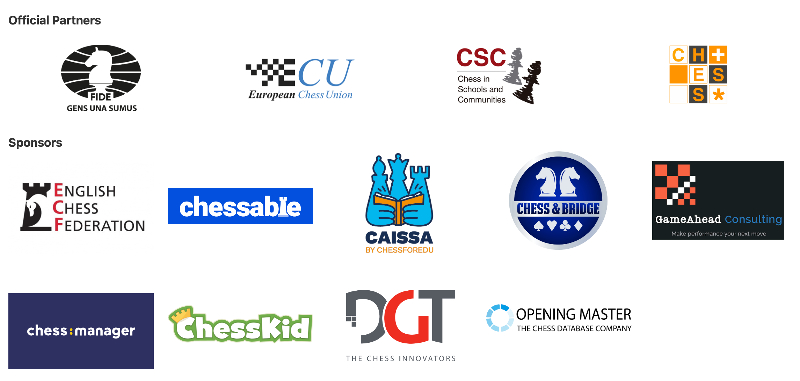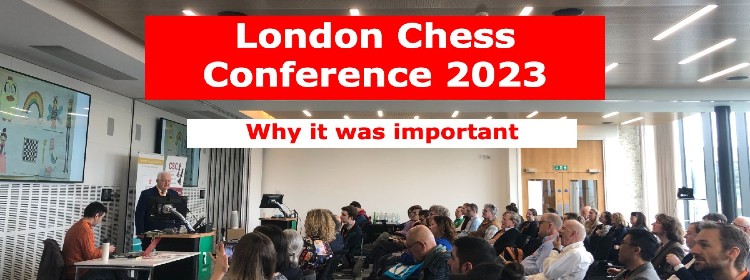A Heartfelt Thank You to the London Chess Conference 2023. Last weekend, I had the incredible opportunity to attend the London Chess Conference, an event that brought together chess enthusiasts, educators, and industry professionals from around the globe. Organized under the leadership of the International Chess Federation Education Commission (FIDE EDU), Chess in Schools and Communities (CSC), European Chess Union (ECU), and ChessPlus, the conference proved to be an inspiring and insightful experience for everyone in attendance.
150 delegates from more than 30 countries
With over 150 international delegates hailing from more than 30 countries, the conference was a testament to the unifying power of chess. The event showcased an array of ideas and strategies on modern chess education for kids, schools, clubs, and associations, all aimed at promoting the game's positive impact on young minds.
I would like to extend my sincerest thanks to FIDE EDU, CSC, ECU, and ChessPlus for their tireless efforts in organizing such an incredible event. The dedication and passion displayed by the organizers were truly inspiring, and their commitment to promoting chess education worldwide is commendable.
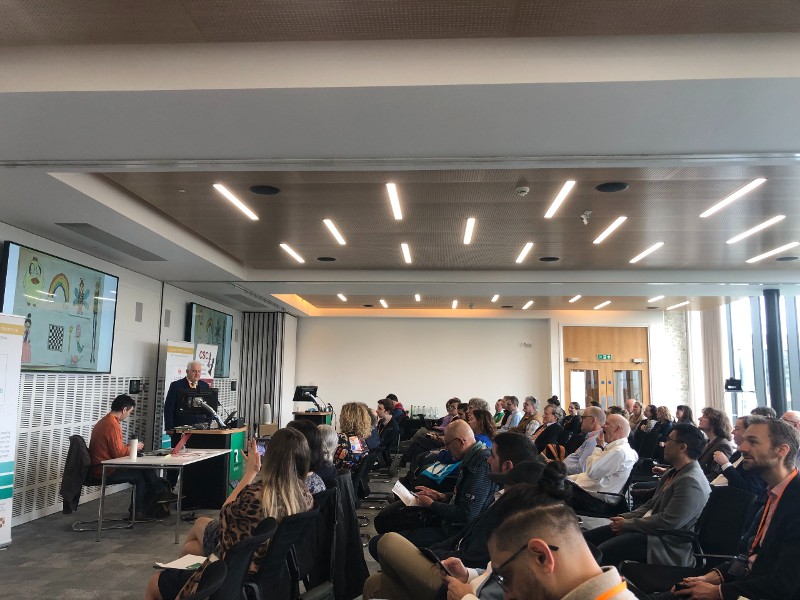
Photo: Delegates London Chess Conference - Opening Master
Success stories from India and Romania
The conference highlighted the success stories of India and Romania, two countries that have effectively integrated chess into their education systems, serving as role models for other nations. India's recent accomplishment of becoming the second-best country in the world according to FIDE is a remarkable achievement that deserves special congratulations. The country's success can be attributed to its strong emphasis on chess education, which has played a significant role in nurturing and honing the skills of their players.
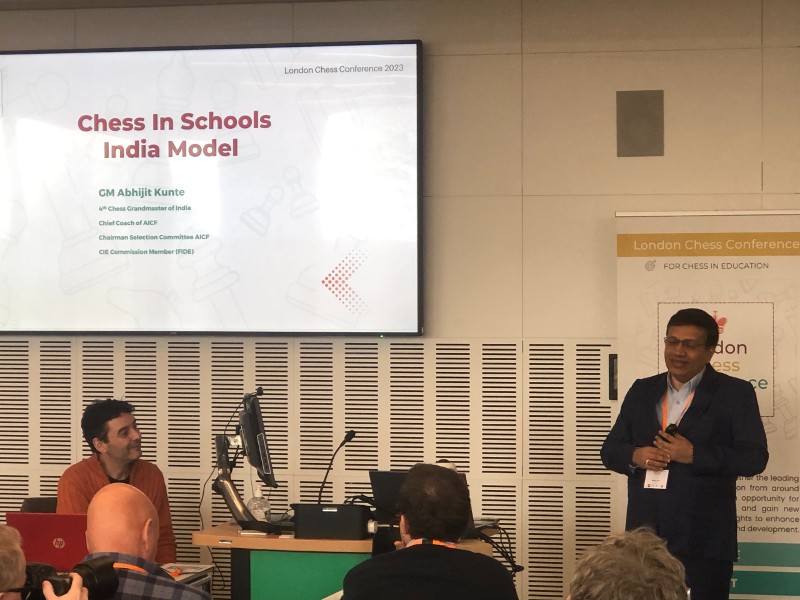
Photo: Grandmaster Abhijit Kunte, Head Coach All India Chess Federation presenting chess education in India - Opening Master
India's success in chess can be attributed to a combination of factors that have contributed to the growth and popularity of the game in the country. Some key reasons include:
Cultural significance: Chess has a deep-rooted connection to Indian culture, as it is believed to have originated in India as "chaturanga" around the 6th century. This rich history has played a significant role in the game's popularity and acceptance in India.
Role models: Indian chess players, like Viswanathan Anand, have inspired a new generation of chess enthusiasts. Anand became India's first Grandmaster in 1988 and went on to become the World Chess Champion multiple times. His success has motivated many young players to pursue chess seriously.
Chess infrastructure: India has a well-organized chess ecosystem that includes numerous chess clubs, academies, and coaching centers. The All India Chess Federation (AICF) has played a critical role in promoting the game and organizing tournaments at various levels, helping talented players gain exposure and experience.
Government support: Chess in India has benefited from government support through funding, recognition, and infrastructure. This support has enabled the growth of chess as a competitive sport in the country.
School support: Indian schools have chess clubs that organize regular practice sessions, training, and friendly games for students. They have incorporated chess as a part of their curriculum or as an after-school activity, offering students structured lessons and opportunities to learn and practice the game during school hours. School-level tournaments, Collaboration with AICF, Scholarships and incentives all contributed to kids learning chess as part of their lifestyle
Talent pool: India has a large, diverse population, which contributes to a vast talent pool of potential chess players. Many young Indians have access to chess resources and opportunities, allowing them to hone their skills and compete at a high level.
Family encouragement: Indian families and society often appreciate and support intellectual pursuits, including chess. This cultural aspect has played a crucial role in the development of chess talent in the country.
These factors, combined with a strong work ethic and dedication to the game, have led to India's success in chess on the international stage. Romania adopted similar system and although their curriculum may differ, the goal is the same. If the system is adopted well, we will soon see many international chess masters and grandmasters coming from Romania too.
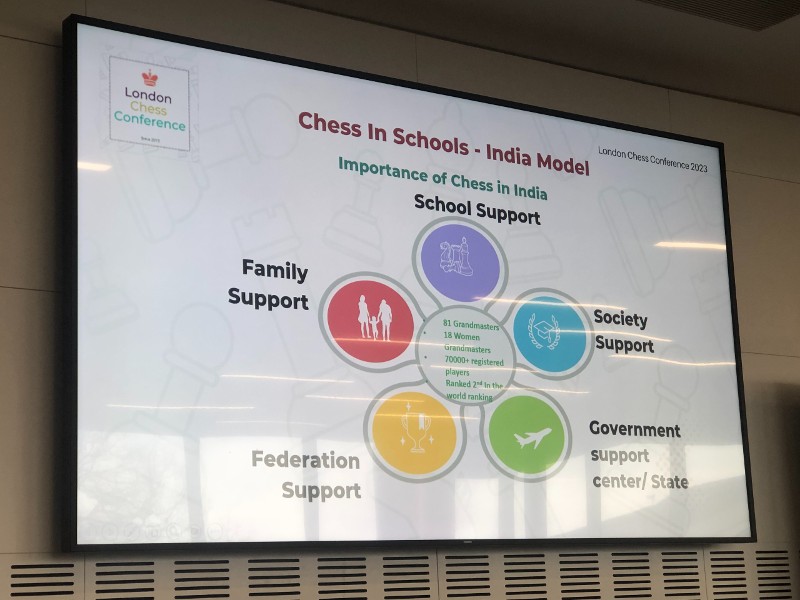
Photo: India Model of Chess education - Opening Master
ChessKid
ChessKid is a web platform specifically designed to help kids learn and enjoy the game of chess in a safe and engaging environment. It offers a comprehensive range of features, including interactive lessons, video tutorials, puzzles, and live games, tailored to suit different skill levels and learning styles. The platform encourages friendly competition through its ranking system, tournaments, and clubs, while also promoting social interaction through monitored chatrooms.
ChessKid fosters a supportive community where kids can develop their chess skills at their own pace and acquire valuable life lessons such as critical thinking, patience, and sportsmanship.
Thanks to its current CEO Carey Fan, they have been able to increase their membership base of kids around the world from 1 million to 8 million members. Impressive works, keep doing. Localization and language support will be a key to spread even further.
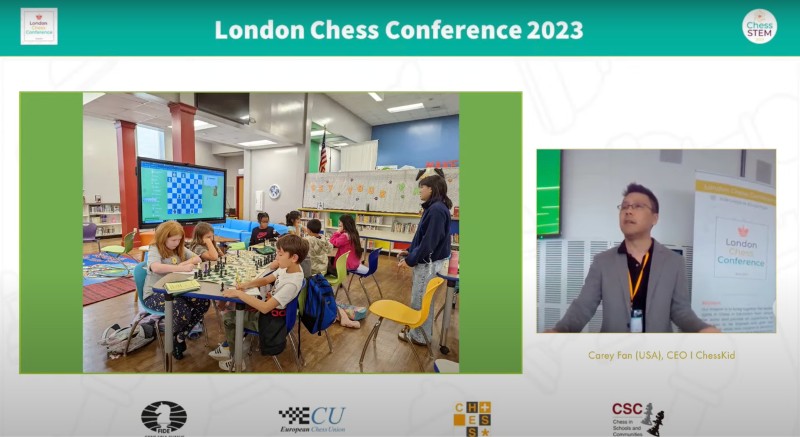
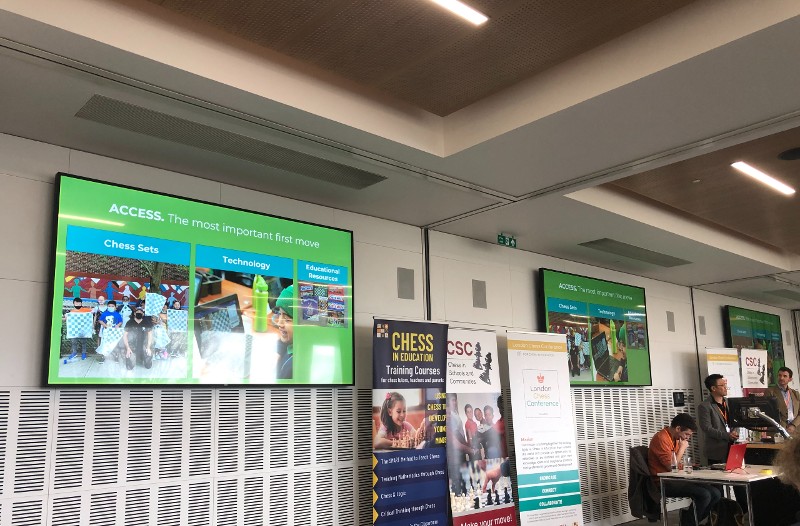
Photo: Carey Fan, CEO ChessKid explain how he grew ChessKid from 1 million users to 8 million users - Opening Master
All under FIDE Education Commission
Last but not least, worth to mention, extreme dedication of International Chess Federation Education Commission (FIDE EDU) to organize and mentor the chess education throughout the world. Under the leadership of its chairman Jerry Nash, we see tremendous work behind spreading chess to various communities, underdeveloped regions, schools, even projects in prisons.
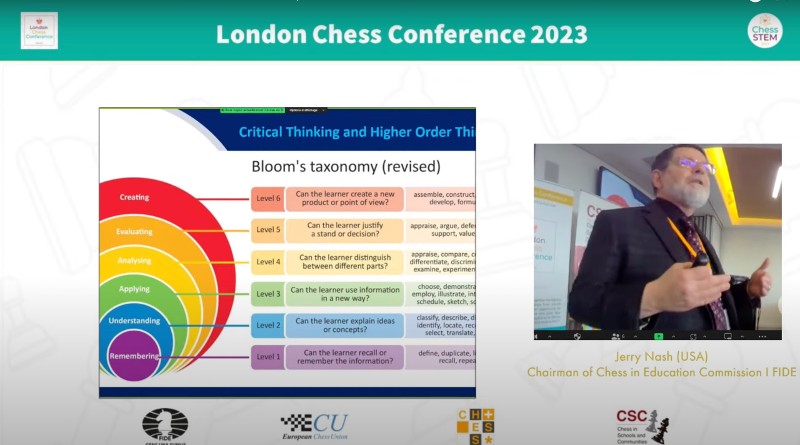

Photo: Jerry Nash, Chairman FIDE Education explain chess develops critical thinking - Opening Master
I would like to express my gratitude to the organizers, speakers, and fellow attendees for making the London Chess Conference 2023 a memorable and enriching experience. The conference has left me feeling inspired and motivated to continue advocating for the integration of chess education in schools and communities worldwide. Here's to the growth and continued success of chess education around the globe!
Alexander Horvath
CEO Opening Master
